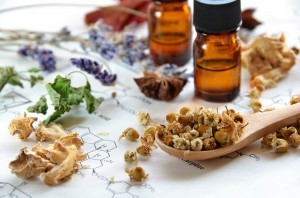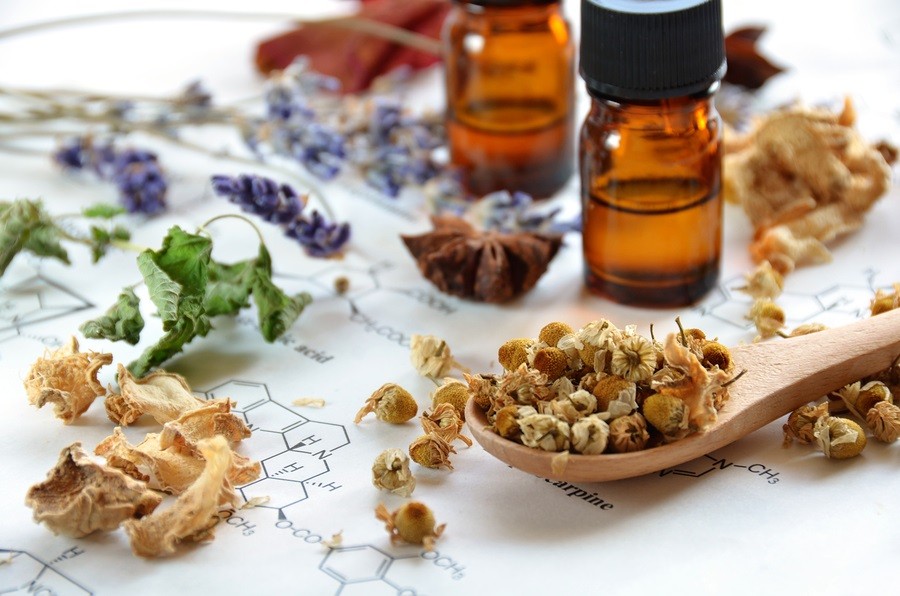
There is a strong and important connection between emotional and physical health. Emotional stress, whether sudden or prolonged can have profound effects upon the body. Grief, depression and anxiety each take their toll on the immune system and can cause a range of illnesses from digestive problems to sleep disorders. Aromatherapy has many practical healing advantages and works in several different ways, but perhaps one of the most fascinating in the relationship that it has with emotional well-being.
Essential oils are often referred to as the “life force” of a plant/flower/tree. They are very concentrated and very powerful. Essential oils promote emotional and spiritual well-being as they can uplift our spirits and calm our busy minds. They can be regenerative both in the physical & emotional sense. Essential oils also promote physical well being as their therapeutic properties include being: antibacterial, anti-fungal, anti-infectious, antimicrobial, antiparasitic, antiviral, and antiseptic.
This is why it's nearly impossible to describe them with language. Olfaction is different from your other senses, processed through different pathways in your brain.
For other sensations such as sounds and visual images, sensory input is delivered straight to your thalamus, which you can think of as “the big switchboard” in your head. From there, data goes out to your primary sensory cortices.
Aromatherapy Was Used to Treat the Plague
The use of fragrances has been around for thousands of years, although traditions and methodologies have changed through the ages. According to “The Smell Report,” the process of extracting and preserving a flower's scent using alcohol distillation was discovered by Avicenna.
How Essential Oils Can Help with Several Common Maladies
There are probably as many uses for aromatherapy as there are essential oils, but research shows particular promise in relieving stress, stabilizing your mood, improving sleep, pain, and nausea relief, and improving your memory and energy level.
An important element of aromatherapy is synergy, which is why using a combination of oils often creates a much more powerful effect than any one particular oil. With a skilled aromatherapist, the possibilities are nearly endless!
In order to give you an idea of the versatility of aromatherapy, the following table lists some of the therapeutic uses of several oils for a few of today's most common complaints. As you can see, there are some real “multitaskers,” like lavender and peppermint—oils that treat more than one problem.
Many of these are discussed in an excellent article in The Huffington Post about scents that can enhance your well-being. For further information, refer to the resource section at the bottom of this article.
Complaint Essential Oils Stress Lavender, lemon, bergamot, peppermint, vetiver, pine, and ylang ylang Insomnia Lavender, chamomile, jasmine, benzoin, neroli, rose, sandalwood, sweet marjoram, and ylang ylang; lemon can wake you up Anxiety Lavender, bergamot, rose, clary sage, lemon, Roman chamomile, orange, sandalwood, rose-scented geranium, and pine Depressed mood Peppermint, chamomile, lavender, and jasmine Pain Lavender, chamomile, clary sage, juniper, eucalyptus, rosemary, peppermint, lavender, and green apple (especially for migraines) Nausea and vomiting Mint, ginger, lemon, orange, ginger, dill, fennel, chamomile, clary sage, and lavender Memory and attention Sage, peppermint, and cinnamon Low energy Black pepper, cardamom, cinnamon, clove, angelica, jasmine, tea tree, rosemary, sage, and citrus
The Science of Smell
Why does the fishy scent of a beach make one person retch while evoking feelings of expansiveness and joy in another? These variations in responses to scents tie into the special brain pathways of your olfactory system. Olfactory information is stored or encoded with all sorts of memories and associations in your brain.
The neurological substrates of olfaction are especially geared for associative learning (in your hippocampus) and emotional processing (in your amygdala). Kate Fox explains it well in “The Smell Report”:
“Our olfactory receptors are directly connected to the limbic system, the most ancient and primitive part of the brain, which is thought to be the seat of emotion. Smell sensations are relayed to the cortex, where ‘cognitive' recognition occurs, only after the deepest parts of our brains have been stimulated. Thus, by the time we correctly name a particular scent as, for example, ‘vanilla,' the scent has already activated the limbic system, triggering more deep-seated emotional responses.”
A number of studies have shown that odor learning begins before birth. A fetus detects flavor/odor compounds in its amniotic fluid, from the mother's diet. In studies where a mothers' consumption of distinctive smelling substances such as garlic, alcohol, or cigarette smoke were monitored during pregnancy, their infants were found to prefer these scents more than infants who had not been exposed to them.
After birth, newborns locate their mothers' nipples by smell. Breastfeeding also influences scent preferences; babies will associate breastfeeding smells with maternal bonding and the comfort of their mothers' arms. According to a recent study, babies can even smell their mothers' fears and learn the dangers of the world, just days after birth. When mothers experience stress, their body releases a scent that their baby detects and responds to.
We Are MUCH Better Smellers Than We Thought
Since the 1920s, scientists have believed that the human nose was capable of detecting about 10,000 odors, but a new study published in the journal Science shows this estimate is way off the mark. In the first empirical study ever done, researchers at Rockefeller University discovered the human nose can discriminate more than one trillion olfactory stimuli! The least successful smeller is now thought to be capable of smelling about 80 million unique scents, but if you're a super-sniffer, you can detect a spectacular one thousand trillion scents.
Scents Can Alter Your Nervous System
Scents can actually change your nervous system biochemistry. A Japanese study found that inhaling essential oils can modulate your sympathetic nervous system activity. Certain oils were found to be stimulating, while others were found to be calming. For example:
- Black pepper, fennel, and grapefruit oil caused a 1.5-to 2.5-fold increase in sympathetic nervous system activity (as measured by an increase in systolic blood pressure)
- Rose and patchouli oil resulted in a 40 percent decrease in sympathetic nervous system activity
- Pepper oil induced a 1.7-fold increase in plasma adrenaline concentration, while rose oil caused adrenaline to drop by 30 percent
- Other oils have been shown to measurably decrease stress hormones—inhaling lavender and rosemary were shown to reduce cortisol levels.
From Onions to Cow Manure: Smell Is in the Nose of the Beholder
As you might expect, cultural differences contribute to what smells enhance your feelings of happiness, versus making you want to flee to the nearest open window. Scent preferences differ dramatically across cultural lines. In many non-Western cultures, smell is regarded with much more importance and even reverence. For example, among the Ongee of the Andaman Islands, the universe and everything in it is defined by smell.
A Few Resources I've Sniffed Out for You
Aromatherapy can be a beneficial adjunct to your overall health plan. It's not a replacement for wise lifestyle choices like good nutrition and exercise, but it is an excellent way to further enhance your physical and emotional health. Aromatherapy is also one more tool you can keep in your tool bag for managing everyday stress, balancing out mood swings, and improving your sleep. Your nose is probably an underappreciated resource, so perhaps it's time to make some use of it! Whether you seek out a trained aromatherapist or adopt a DIY approach, the following are a few resources you might find useful.
- National Association for Holistic Aromatherapy (NAHA): Everything about the medicinal use of aromatic plants and the holistic practice of aromatherapy
- Aroma Web: A directory of aromatherapy information, tips, recipes, sources, including a regional aromatherapy business directory
- American Botanical Council: Herbal medicine information that includes an herb library and clinical guide to herbs
- Herb Med: Interactive electronic herb database (some information is free, but full access requires a fee)
![]() If you want an aromatherapy treatment that it personal and portable, simply add a few drops of your favorite oil to a handkerchief and you have a discreet aromatherapy that you can take to work or outdoors with you.
If you want an aromatherapy treatment that it personal and portable, simply add a few drops of your favorite oil to a handkerchief and you have a discreet aromatherapy that you can take to work or outdoors with you.
Please Read this Article at Articles.Mercola.com





Leave a Reply